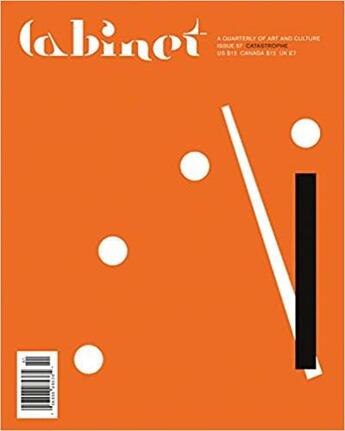-
Date de parution : 29/12/2015
-
Editeur :
Dap Artbook
-
EAN : 9781932698657
-
Série :
(-)
-
Support :
Papier
Résumé:
The theorist Fredric Jameson once wrote that it has become easier for us to imagine the world ending than to imagine a society not built around capitalism. As scenarios forecasting the collapse of social and ecological systems become increasingly credible, our answers seem confined to taking... Voir plus
The theorist Fredric Jameson once wrote that it has become easier for us to imagine the world ending than to imagine a society not built around capitalism. As scenarios forecasting the collapse of social and ecological systems become increasingly credible, our answers seem confined to taking measures within the very logic that is the cause of our predicament. Or we spend our resources preparing for the worst: the Norwegian government builds a global seed vault for a post-apocalyptic future, while individuals stock safe rooms waiting for an end-time. Cabinet 57, with a special section on "Catastrophe," includes an interview with Anson Rabinbach on European intellectual responses to the catastrophes of two world wars; Matthew Spellman on St. Anthony the Hermit and the notion of retreating from a world marked by disaster; and Jonathan Hayes on the nineteenth-century roots of the ecological movement. Elsewhere in the issue: Charlie Hale on the decline and (noncomedic) fall of Buster Keaton; Adam Morris on the history of the flume ride and its relationship to logging practices in the US; and more.
Donner votre avis














